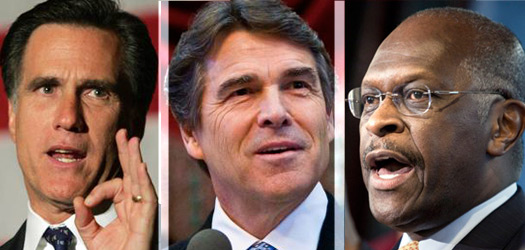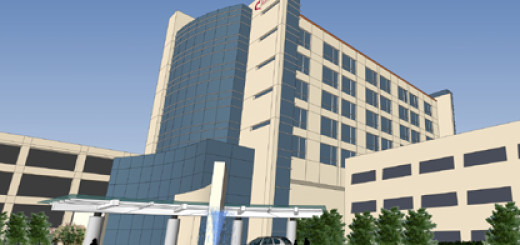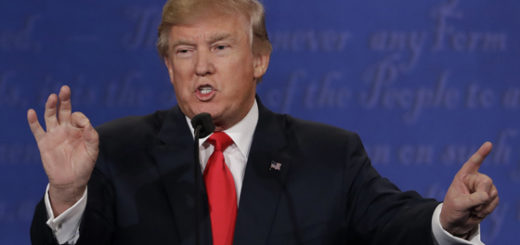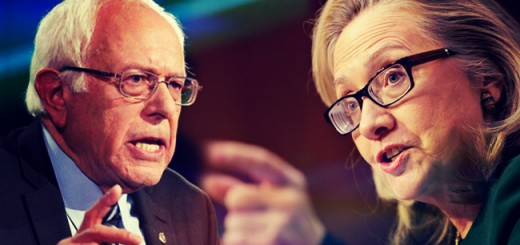It’s not a policy election. It’s a philosophy election.

Click here to listen to the broadcast of You Tell Me on KTBB AM & FM, Friday, Oct. 28, 2011.
The three Republican front-runners are now each out with tax proposals. Herman Cain has been selling his 9-9-9 plan. Rick Perry came out this week with a plan centered on a flat 20 percent tax rate. Mitt Romney has had for some time a 160 page, 59-point manifesto on taxes and the economy.
None, in my opinion, has yet touched many hearts nor quickened many pulses.
That’s because more and more Americans are coming to realize that our problems are much, much deeper than policy. What’s in play in this election is philosophy. And that makes it more like a constitutional convention than a political election.
When the country was born, the founders argued vehemently about where to draw the line on the limits of government. If the limits were set too narrowly, the government would be too weak and would thus be ineffectual and the union would fail. But if given too much latitude, the resulting government would, by the very nature of government, tend toward the tyranny from which the fledgling nation had just fought to be liberated.
This philosophical argument, this moment – vigorous and heated – gave us a constitution comprising a spare framework for the conduct of commerce and justice that otherwise pretty much got out of the way.
Prosperity followed.
Independent self-reliance was the cornerstone of the American experiment. There were no safety nets and if you failed, life could be very hard. But fear of failure and its consequences has the virtue of focusing one’s mind and energies. Thus focused, America became strong and proud.
Yet, partly as a perverse result of America’s massive economic success, the country gradually became of two minds.
On the one hand was the independence and self-reliance that gave America the strength to overcome the depression, win World War II, rebuild the nations it had just defeated and to become the wealthiest nation in history.
On the other hand a wealthy society, with the best of intentions, made it possible for those not just unable but actually unwilling to be self-reliant, to become instead dependent on the government for their daily needs. The once unthinkable idea that one could have shelter, food, medical care, transportation and creature comfort without having to put forth any effort at all, took hold.
Fatherless homes, rampant drug use, unlivable neighborhoods, soaring illegitimacy, generational dependence and a bankrupt treasury soon followed.
The candidates are busy bashing one another on tax policy and immigration policy and health care policy and this or that policy. None has yet reached critical mass with the voters.
And none seems to recognize the moment. The moment is, I believe, of nearly as much consequence as the moment that gave us the constitution.
We have, over a period of decades, gradually mitigated the risks attendant to economic freedom to too great a degree. The result is a cancerous nanny-statism, now of unsustainable proportion, that is threatening America’s very existence.
I’m waiting for Romney or Perry or Cain to recognize that this election is different. I’m waiting for one to depart from the conventional political wisdom.
I’m waiting for one to express anew the founders’ philosophical belief in the power of independence and self-reliance.
I’ll care about tax policy later. Right now, I’m waiting for one of them to express heartfelt belief in the creative energy of the American people and to then campaign on that belief.
If one of them has the courage to do that, I believe that a concerned and reawakened American people will make him their next president, and a very consequential one at that.








Dang, Paul, your editorials are always world class, but this one is especially pertinent. Hopefully at least one of the candidates will get the revelation and passionately articulate it. No telling what a landslide would result.
Paul, With “It’s not a policy election. It’s a philosophy election” you are again on target. We are at a crossroads where this nation decides if it is to remain a free republic or go down the dark road to socialism. While many would willingly give up their rights and freedom for the false promise of comfort and a free ride, I think more Americans understand what made America great and are willing to fight to keep it so. Yes, as you say, we’re looking for a leaders that clearly believes in this nation and not just more big government.
I have about desided that there is no hope left to bring America back to the super power she was for she has lost her moral compass. I can tell you right now that Romney is the worst possible choice. He is a career politician who will say anything to be elected. He has coveted the Presidential office for as long as I can remember, now being his third try. He is a rino, no, worse… He is a wolf in sheeps clothing just as obama was. Perry is not much better than Romney, he talks a good story but lacks the backbone to stand true to his words. There is too much big government in Perry to trust him to do the right thing. The guardasil issue is a very good example along with the Texas corridor. I do not believe that Romney or Perry would make the repeal of obamacare their first priority, which is of extreme importance to be done if we are going to get America back on track. The tax burden upon everyone will be greater still if obamacare is not repealed. But very little is being said about this.
This election, more than any other I have ever seen, will determine whether America will survive or if she will be a footnote in history. To survive, America will need a person unafraid to stand up for what is right and do what needs doing even though they will faced with opposition. America needs to regain her moral compass.
Paul,
Ditto on your statement: “I’m waiting for one to express anew the founders’ philosophical belief in the power of independence and self-reliance.”
I have learned through life to pay attention to what someone DOESN’T SAY on a particular issue. The Republican Party and most of their current leaders in Congress DON’T expose the dangers of the Marxist Democrat control of our lives through unconstitutional rule by the Administrative state in Washington (the out-of-control Federal Bureaucracy). On the contrary, these Republicans only want Federal control in order to exercise THEIR particular version of Compassionate Conservationism, another cradle to grave, unconstitutional, exercise that isn’t as harsh as the closet Marxist Democrat.
The inexorable loss of proper Constitutional control of Washington’s greed for power has all but wrecked our economy over the last 20 years as debt is piled upon debt. Debt has a way of camouflaging the real wealth of a country or person. A near bankrupt person living in a $3 million house is not wealthy – neither is our country.
Until we dismantle the corrupt government that has erected a facade of available unearned benefits to the country at large (Marxism without the inevitable disastrous consequences), we are destined to fall into tyranny of the takers at the expense of the makers. Hence, the death of Capitalism will usher in the fairness of equal outcome – poverty for all – except for the Ruling Class, of course.
In this primary election season, we should only support those that have the knowledge and courage to expose the state of corruption of institutionalized Marxism in Washington and those who promote it.